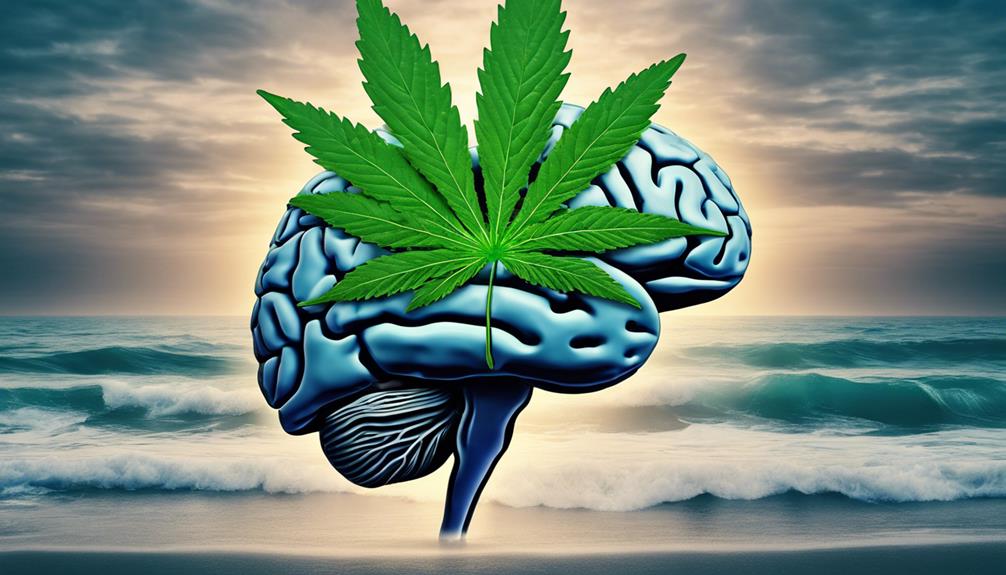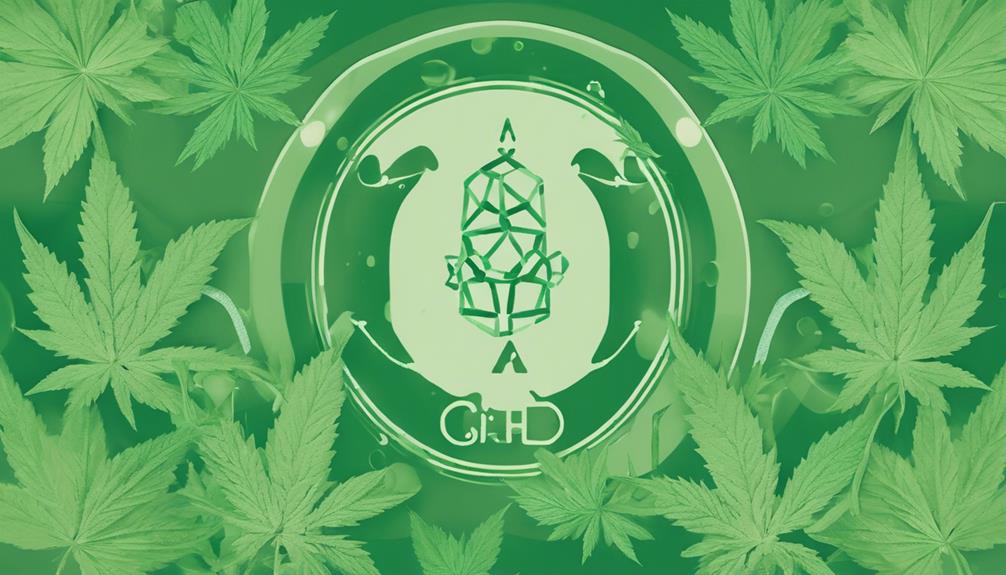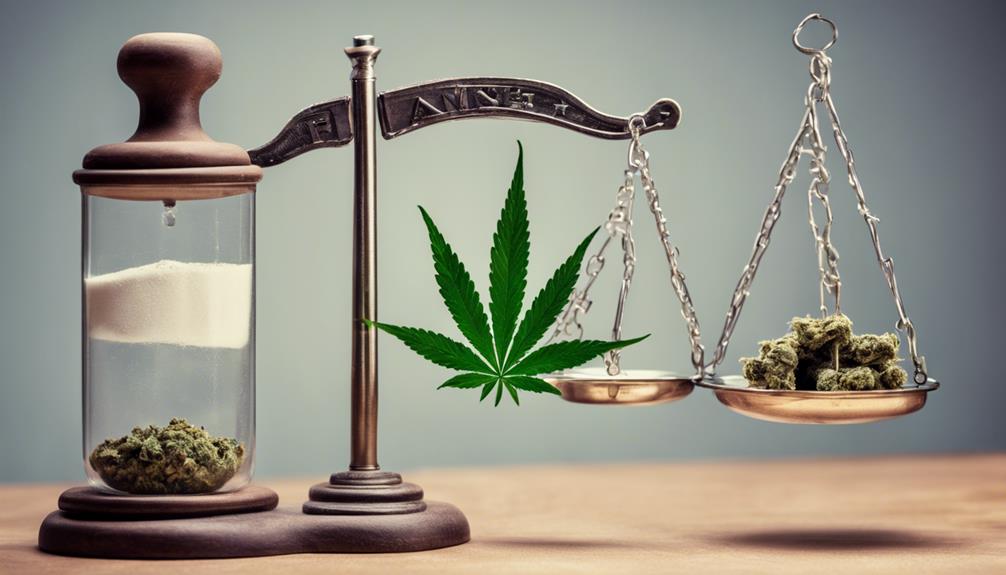You’ve likely heard about the potential of medical marijuana in treating various conditions, but did you know it’s also being explored for anxiety relief? Traditional treatments don’t always work and can come with unwanted side effects, making the search for alternatives essential. As more research surfaces, the question arises: could compounds in marijuana like THC and CBD offer a more effective solution? Uncover the intriguing possibilities in the field of medical marijuana and its potential role in anxiety management. The findings might just surprise you.
Understanding Anxiety and Its Impact

While many people experience occasional stress or worry, anxiety disorders go beyond temporary worry or fear. For those passionate about serving others, understanding these disorders is essential. Anxiety disorders persist, affecting how individuals feel and behave, leading to physical symptoms. Their psychological effects are extensive and can be debilitating.
At the core of anxiety management is understanding its symptoms – these can range from feelings of apprehension or dread to trouble concentrating or feeling tense or jumpy. Symptoms may also include anticipating the worst scenarios, irritability, restlessness, watching for signs of danger, feeling like your mind’s gone blank to physical symptoms such as pounding heart rate or shortness of breath.
These symptoms can be overwhelming without proper anxiety management; they can interfere with daily activities such as job performance, schoolwork, and relationships. It’s essential to understand these impacts to serve others effectively. Awareness is the first step towards helping others manage anxiety and improve their quality of life.
Historical Usage of Marijuana in Medicine
It may surprise you that marijuana has a rich history in medicine dating back thousands of years. This multifaceted plant wasn’t always seen as controversial. In fact, ancient cultures revered it for its healing properties. Marijuana was a staple in ancient remedies, utilized by civilizations in Asia, Africa, and the Americas.
In China, this herb was incorporated into traditional treatments around 2700 BC to soothe pain and other ailments. Similarly, in India, cannabis was blended into Ayurvedic practices – a holistic healing system still in effect today – often used for reducing stress and promoting relaxation.
In many cultural traditions, marijuana was more than medicine; it was a sacred plant believed to heal the body and mind. From the temples of ancient Egypt to the tribal rites of Native Americans, marijuana held a special place. Today we’re reconnecting with this legacy as we explore its applications in modern medicine.
Cannabis and Its Active Ingredients

Although marijuana is often viewed as a single entity, understanding that the plant is composed of various compounds is essential. The most notable ones are THC (Tetrahydrocannabinol) and CBD (Cannabidiol). These compounds play significant roles in the plant’s effects on the body.
THC is primarily responsible for the psychoactive effects or “high” associated with marijuana use. On the other hand, CBD doesn’t produce these psychoactive effects but has gained attention for its potential therapeutic benefits including anxiety relief.
Cannabinoid research is a rapidly expanding field. Scientists are uncovering how these cannabinoids interact with the body’s endocannabinoid system, a complex network that regulates various physiological processes.
The relationship between these active ingredients and anxiety relief is an area of particular interest. While THC can sometimes exacerbate anxiety, CBD appears to counteract this effect. This understanding allows for the development of more effective, symptom-focused treatments.
Research on Marijuana’s Anti-Anxiety Effects
Scientific research on marijuana’s anti-anxiety effects has increased over the past few years. Clinical trials have examined its potential benefits and side effects for anxiety disorders.
Researchers have found that the chemical compounds in cannabis, specifically THC and CBD, interact with the body’s endocannabinoid system which plays a crucial role in maintaining emotional balance and regulating stress response. Preliminary results suggest that marijuana may indeed have anti-anxiety properties.
However, it’s not all straightforward. The effects of marijuana on anxiety symptoms can depend on various factors such as the strain of cannabis used, dosage, and individual biochemistry.
A delicate balance is at play: while low to moderate doses may alleviate anxiety, higher doses might exacerbate it. Like any medicine, marijuana isn’t without its side effects which can include dry mouth, dizziness, altered cognitive function among others. It’s also important to acknowledge potential long-term effects particularly for chronic users.
Comparing Traditional Anxiety Treatments

Drawing upon knowledge surrounding traditional anxiety treatments and comparing them with medical marijuana is crucial. Traditional treatments such as prescription medications and cognitive behavioral therapy (CBT) have been serving patients for years. However, it’s necessary to evaluate medication effectiveness and potential side effects which may impact the quality of life.
Prescription medications like benzodiazepines or selective serotonin reuptake inhibitors (SSRIs) often provide rapid symptom relief but come with drawbacks. Side effects may include sleep issues, sexual dysfunction, and even increased anxiety symptoms over prolonged use. Addiction is also a significant concern especially with benzodiazepines.
CBT offers a drug-free approach by equipping individuals with techniques to manage anxiety triggers and symptoms. But therapy isn’t a quick fix; it requires time and commitment which might not be feasible for everyone.
In contrast, medical marijuana is gaining attention for its potential to alleviate anxiety symptoms with fewer adverse effects. Its efficacy is still under study, yet early findings suggest it might offer a more balanced approach to anxiety treatment.
Patient Experiences With Medical Marijuana
Many people report positive experiences when using medical marijuana to manage their anxiety symptoms. Patient testimonials indicate a sense of relief and calm they hadn’t previously achieved with traditional treatments.
Consider the case of a young professional who’d been battling chronic anxiety for years. She describes her experience with medical marijuana as a turning point in managing her stress levels effectively.
A veteran who struggled with post-traumatic stress disorder reports remarkable decrease in his panic attacks and an overall improved quality of life after using medical marijuana for his anxiety management.
These patient experiences aren’t isolated incidents; they represent growing evidence supporting the use of medical marijuana for anxiety relief.
Conclusion
Medical marijuana could be the silver lining for those battling anxiety. It’s not a magic bullet, but research shows it offers superior relief compared to traditional treatments, without the severe side effects. Your personal experience with medical marijuana will ultimately determine its effectiveness. Stay informed and open-minded, and you could find a new way to manage anxiety.
Consider visiting Fells Point Cannabis Docs of Maryland to learn more about medical marijuana and its benefits. If you’re unable to visit, don’t worry! You can simply call us at (410) 401-4200. We’re more than happy to answer any questions you might have or guide you through the process. Remember, you’re not alone in this journey, and we’re here to help.
